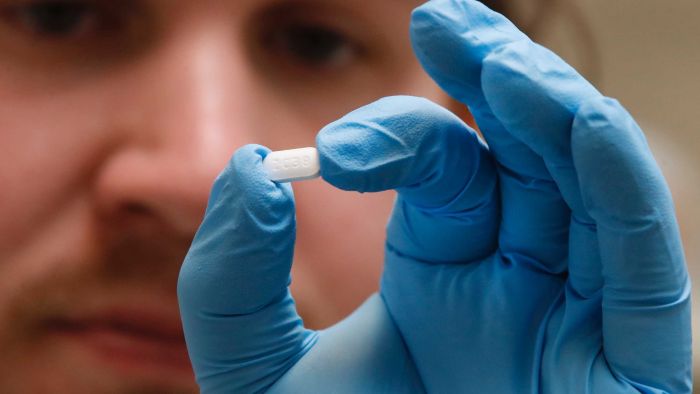The group had all the trappings of medical authority.
Wearing white coats as they stood with serious faces in front of the US Supreme Court earlier this week, they called themselves “America’s Frontline Doctors”.
In the video of their press conference, which was livestreamed on Facebook, the group promoted a familiar but controversial narrative: that the drug hydroxychloroquine could help treat COVID-19.
They made their claims despite large scientific studies showing the drug doesn’t benefit people hospitalised with the disease.
The original clip was removed from Facebook but it lived on, with a retweet from US President Donald Trump and a boost on Instagram from celebrities like Madonna. After that, right-wing and conspiratorial online communities — including those in Australia — made a point of keeping the video available online.

Even a transcript of the press conference, on the website of transcription service Rev, has received more than 800,000 interactions on Facebook, according to data from social media monitoring firm Crowdtangle. It has been posted more than 500 times.
The video controversy is only the latest instalment in the saga of hydroxychloroquine’s transformation, from relatively obscure anti-malarial drug to political football.
It first arrived in the spotlight thanks to widespread press coverage and now, in private Facebook groups and in YouTube comment feeds, hydroxychloroquine is no longer just an unlikely medicine for COVID-19.
To believe in its efficacy is often a way to indicate support for President Trump or an ideological scepticism of the medical establishment, entirely disconnected from the science.
“It’s a tenet of faith,” said Tom Sear, a fellow with UNSW Canberra Cyber at the Australian Defence Force Academy. “All the scientific evidence is doubtful — and there’s Trump with certainty.”

